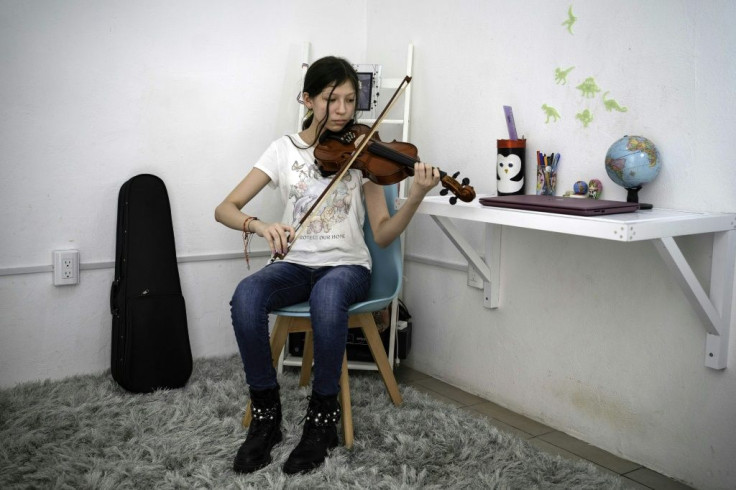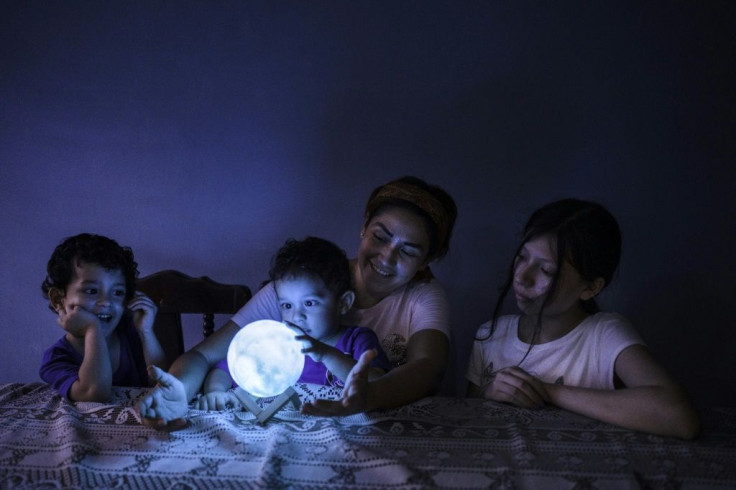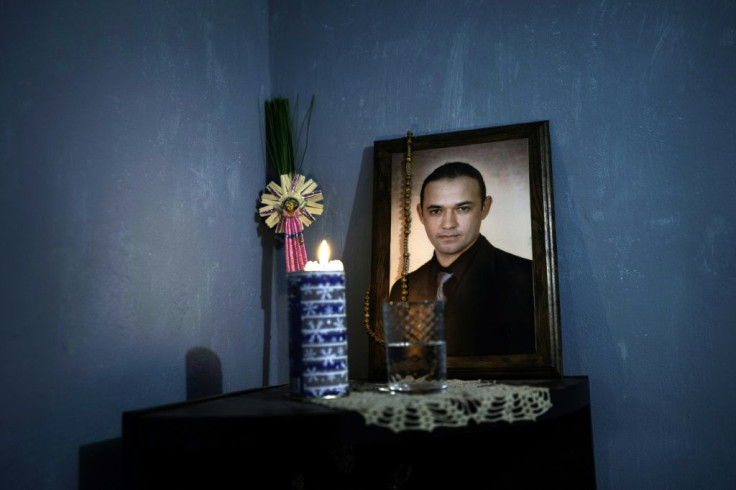Mexico's Covid Orphans Face Daunting Return To School
Days before Mexican classrooms reopen, Andrea Montero's mind is made up -- it is too soon after their father's sudden death from Covid-19 for her three children to go back.
"If they don't go to parties or shopping malls, I'm not going to put them at risk by taking them" to school, said Montero, whose husband Cesar Fernandez, an oil worker, died in June 2020 at the age of 38.
According to The Lancet medical journal, more than 131,000 children in Mexico have lost a mother, father or both to the coronavirus pandemic.
That is the most out of 21 countries included in the study covering the period from March 2020 to April 2021.
More than three of every 1,000 under-18s in Mexico have been orphaned by Covid-19, The Lancet found, using the UN children's agency UNICEF's definition of losing one or both parents.

Among the countries covered by the study, only Peru and South Africa have more pandemic orphans relative to population size.
Data presented at a forum held by Mexico's Senate in April painted an even bleaker picture, estimating that the pandemic has orphaned 195,000 children in Mexico.
The grief and anxiety make returning to school a challenge for bereaved families, despite President Andres Manuel Lopez Obrador's call to return to classrooms on August 30 come "rain, shine or lightning."
He argues that the physical, psychological and emotional effects on children of more than a year at home mean that it is better to go back despite a third wave of Covid-19 shaking the country.
According to government statistics, the probability of a person under the age of 18 becoming seriously ill from Covid-19 is 0.004 percent.

Two months before her father died, Montero's 12-year-old daughter Paola received a gift of a violin, which she learned to play first through YouTube tutorials and then at a music school.
"She was grieving differently. She focused on playing her musical instrument better and managed to advance a lot," said Montero.
The 33-year-old resident of the eastern state of Veracruz divides her time between working and caring for Paola and her other children, Cesar, five, and Cedric, two.

"Cedric says that his father is living on the moon. One day when there was a quarter moon the boy cried because he said it was broken," she said.
Raul Castillo's three children -- Cynthia, 12, Uriel, 14, and Julio, 20 -- were unaware their father was diabetic, putting him at greater risk from Covid-19, because he had not told his family.
The public sector worker died in January aged 45 -- one of around 254,000 people lost to the coronavirus in Mexico, which has one of the world's highest death tolls.
"The pandemic killed him because he was already sick," said his widow Maria Elena Jimenez.
Millions of Mexican children underwent distance learning from home during the previous school year.
Montero was concerned that Paola and Cesar's teachers seemed indifferent to their father's death, so she decided to put them in their own virtual classes.
"How do you ask a girl to tell you how the pandemic has been for her when you know that her father died?" she said.
Some children who were orphaned by Covid-19 have slipped into depression, according to Fernando Ruiz, a public school teacher in the State of Mexico.
According to their families, "some didn't even want to watch television and spent the whole day in pajamas," he said.
The closure of classrooms affected around 37 million students in Mexico for 17 months, the longest period of any Latin American nation, according to UNICEF.
"There are children who have suffered a loss, but also those who have had an exceptional year of confinement ... with anxiety, fears and worries," said Astrid Hollander, head of UNICEF's education program in Mexico.
While some parents prefer to keep grieving children at home, others like Jimenez hope that going back to school will help them emotionally.
"My daughter says that she's nervous now that her father's gone, but I tell her that we have to carry on," she said.
© Copyright AFP 2024. All rights reserved.




















